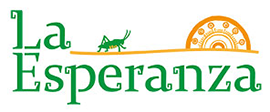
Mauricio Salinas, La Colectiva’s first fellow, has submitted the first progress report on a project which aims to increase Hispanic parents’ participation in their children’s education and improve learning through research and partner collaboration.
Please offer feedback using this link.
Here is a summary of Mauricio’s first report. You can find the full report online.
Parental and community involvement can dramatically improve student success. A curriculum designed with high standards and expectations for all students; a well-thought-out instructional design; and effective school personnel with great leadership are most successful when parents and the community participate.
The fellowship’s objectives are three-fold: Identify barriers that block Hispanic students from pursuing higher education; collaborate with La Colectiva partners to learn how available resources reach families; and develop a parental involvement program for families of high school students.
When parents or guardians are involved, students perform better academically, enroll in challenging programs and earn more credits. Student attendance improves, behavior is better at school and home, and students develop good habits and social skills.
The work of the Arsht-Cannon Fund fellowship calls for learning directly from partner organizations about their work. The fellowship’s first phase aimed to document parental involvement activities, resources and family needs.
Throughout the initial stage of the fellowship, Mauricio worked to identify how Hispanic families use these services. While parental engagement and higher education resources exist in distinct spheres, this project aimed to document to what extent one supported the other. Are parents more likely to know their child’s higher educational aspirations if they are actively involved in activities in their child’s school? Did parents want to learn more about higher education or training options available to their children?
Given the low number of Hispanic students pursuing training or higher education, this study wants to identify obstacles that impede Hispanic students from continuing to higher education. As these gaps are determined, the project hopes to identify resources that would support students en route to college/university education or job training.
Providing resources to students to help them decide their future must not be left to chance. Therefore, identifying disparities in the post-secondary information pipeline is key to this project.
